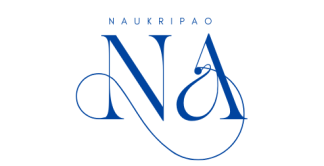
In today’s complex world, understanding and developing personal ethics is crucial for navigating life’s challenges and making decisions that align with our values. This blog post will delve into the concept of personal ethics, explore its importance, and provide practical tips for cultivating strong ethical principles in your daily life.
What is Personal Ethics?
Personal ethics refers to the set of moral principles and values that guide an individual’s behavior and decision-making processes. These principles are deeply personal and often shaped by various factors, including upbringing, culture, religion, education, and life experiences. Personal ethics serve as an internal compass, helping individuals distinguish between right and wrong and make choices that align with their core beliefs.
Personal Ethics Definition
To provide a more formal personal ethics definition, we can say that it is a system of moral standards and principles that an individual adopts to govern their conduct in personal and professional settings. These ethical guidelines are self-imposed and reflect a person’s values, beliefs, and sense of integrity.
Read What Are Business Ethics?: Definition, Importance, Types and Principles
Principles of Personal Ethics
While personal ethics can vary from one individual to another, there are some common principles that often form the foundation of ethical behavior:
- Honesty and integrity
- Respect for others
- Responsibility and accountability
- Fairness and justice
- Compassion and empathy
- Trustworthiness
- Loyalty
- Commitment to personal growth
These principles of personal ethics serve as a framework for making ethical decisions and living a life aligned with one’s values.
Examples of Personal Ethics
To better understand how personal ethics manifest in real-life situations, let’s explore some examples:
- Environmental consciousness: An individual who values environmental protection might choose to reduce their carbon footprint by using public transportation, recycling, and supporting eco-friendly businesses.
- Honesty in relationships: A person with strong personal ethics might prioritize open communication and truthfulness in their personal and professional relationships, even when it’s difficult or uncomfortable.
- Work-life balance: Someone who values family time and personal well-being might set boundaries at work to ensure they can dedicate sufficient time to their loved ones and self-care.
- Volunteerism: An individual with a strong sense of community responsibility might regularly volunteer at local organizations or participate in charitable activities.
- Ethical consumerism: A person with strong personal ethics might choose to support businesses that align with their values, such as those that practice fair trade or have sustainable production methods.
These examples of personal ethics demonstrate how individuals apply their moral principles to various aspects of their lives.
Difference Between Professional and Personal Ethics
While personal ethics guide an individual’s overall behavior, professional ethics are specific to the workplace or a particular profession. Understanding the difference between professional and personal ethics is essential for maintaining integrity in both personal and professional spheres.
Professional Ethics
Professional ethics are typically:
- Codified: Often written down in the form of codes of conduct or professional standards.
- Industry-specific: Tailored to the unique challenges and responsibilities of a particular profession.
- Externally enforced: May be regulated by professional bodies or organizations.
- Focused on job-related behaviors: Primarily concerned with conduct in the workplace.
Personal Ethics
Personal ethics, on the other hand, are:
- Self-imposed: Developed and adhered to by the individual.
- Comprehensive: Apply to all aspects of life, not just work.
- Internally motivated: Driven by personal values and beliefs.
- Flexible: Can evolve over time as an individual grows and experiences life.
While there may be overlap between professional and personal ethics, it’s important to recognize that they serve different purposes and may sometimes come into conflict. For example, a lawyer’s professional ethics might require them to defend a client they personally believe to be guilty, which could create tension with their personal ethical beliefs.
The Importance of Personal Ethics
Having a strong sense of personal ethics is crucial for several reasons:
- Decision-making: Personal ethics provide a framework for making difficult decisions, especially when faced with moral dilemmas.
- Building trust: Consistently adhering to ethical principles helps build trust and credibility in personal and professional relationships.
- Personal growth: Developing and refining personal ethics contributes to self-awareness and personal development.
- Social responsibility: Strong personal ethics often lead to a greater sense of social responsibility and community engagement.
- Conflict resolution: Having clear ethical principles can help navigate conflicts and find fair solutions.
- Mental well-being: Living in alignment with one’s values can lead to greater satisfaction and reduced stress.
Developing and Strengthening Personal Ethics
Cultivating strong personal ethics is an ongoing process. Here are some tips to help you develop and strengthen your ethical framework:
- Reflect on your values: Take time to identify and prioritize your core values. What principles are most important to you?
- Seek diverse perspectives: Engage with people from different backgrounds and cultures to broaden your understanding of ethical issues.
- Study ethical frameworks: Familiarize yourself with various philosophical and ethical theories to inform your own ethical reasoning.
- Practice ethical decision-making: When faced with choices, consciously consider the ethical implications of your actions.
- Learn from mistakes: Reflect on past decisions and their outcomes to refine your ethical principles.
- Stay informed: Keep up with current events and ethical debates to challenge and evolve your thinking.
- Lead by example: Demonstrate your ethical principles through your actions and encourage others to do the same.
- Seek feedback: Ask trusted friends or mentors for their perspectives on your ethical behavior and areas for improvement.
Challenges in Maintaining Personal Ethics
While having strong personal ethics is admirable, it’s not always easy to maintain them. Some common challenges include:
- Peer pressure: The influence of others can sometimes lead us to compromise our ethical standards.
- Conflicting values: Different ethical principles may come into conflict, requiring careful consideration and prioritization.
- Short-term gains vs. long-term principles: The temptation of immediate benefits can sometimes overshadow long-term ethical considerations.
- Cultural differences: Navigating diverse cultural norms and expectations can challenge our personal ethical framework.
- Ethical fatigue: Constantly facing ethical dilemmas can be mentally and emotionally draining.
To overcome these challenges, it’s important to regularly reflect on your ethical principles, seek support from like-minded individuals, and practice self-compassion when faced with difficult decisions.
Conclusion
Personal ethics form the foundation of our character and guide our interactions with the world around us. By understanding what personal ethics are, recognizing the difference between professional and personal ethics, and actively working to develop and strengthen our ethical framework, we can lead more fulfilling and principled lives.
Remember that personal ethics are not static; they can and should evolve as we grow and gain new experiences. The key is to remain committed to self-reflection, continuous learning, and the application of our ethical principles in daily life.
By cultivating strong personal ethics, we not only improve our own lives but also contribute to creating a more ethical and compassionate society. As we navigate the complexities of the modern world, let our personal ethics serve as a guiding light, helping us make decisions that reflect our values and positively impact those around us.
